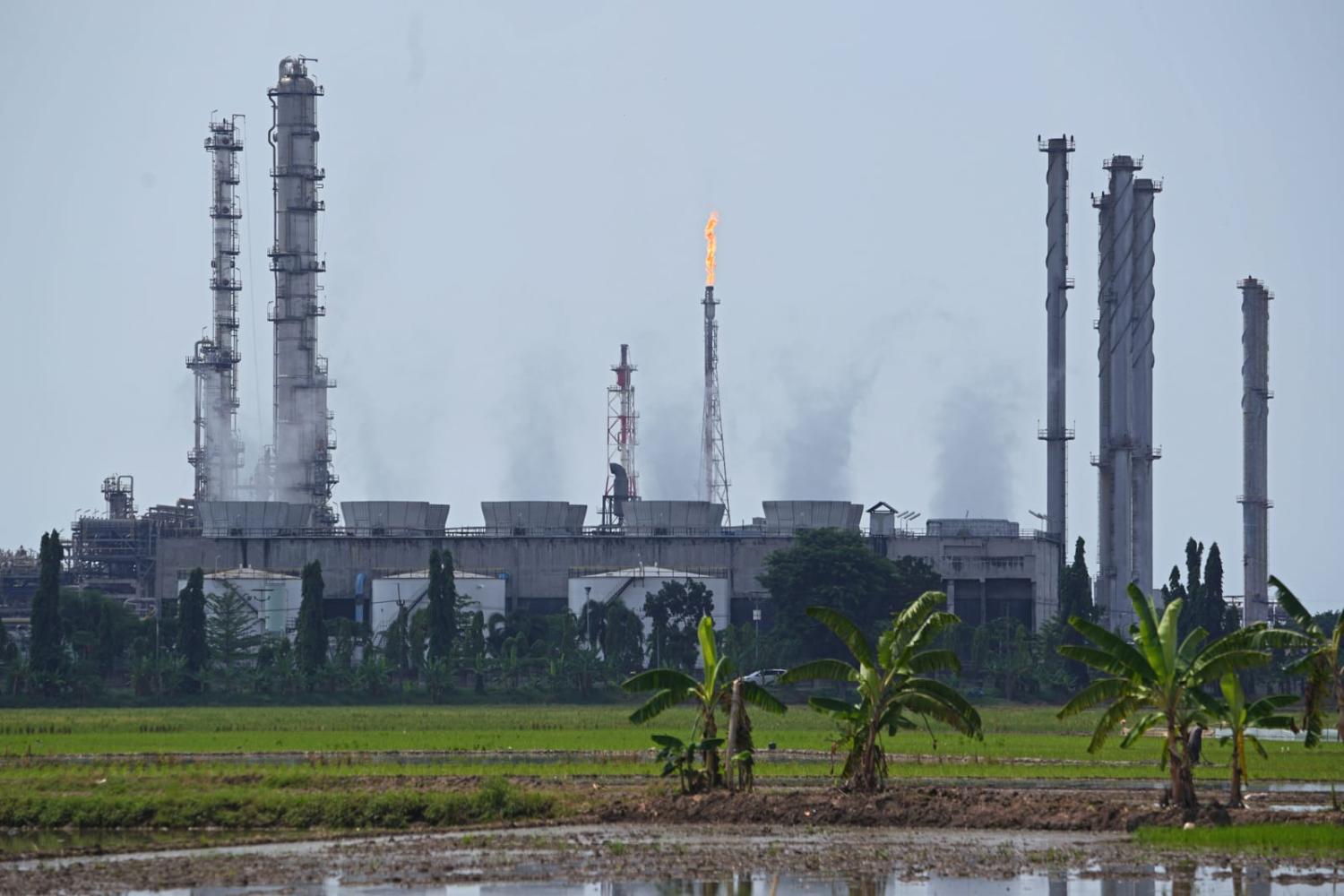The Australia’s women’s soccer team the Matildas may have gone down in the World Cup semi-final this week, but they certainly won over the fans – perhaps none more surprising, having beaten France in the quarter finals, than French President Emmanuel Macron, siding with Australia over England and underscoring the marked change in a tone in what had been a prickly relationship after the failed submarine deal and the AUKUS announcement.
The Albanese government should take the inspiration of winning over unexpected admirers in its approach to regional climate diplomacy. Environmental protection is a crucial agenda for Asia and the Pacific, and a big part of that is energy adaptation. Renewals are undoubtably the future, but the use of fossil fuels will not stop overnight – indeed, some of Australia’s crucial partners in the region simply can’t afford them to.
For Australia, the passage of the Environment Protection (Sea Dumping) Amendment (Using New Technologies to Fight Climate Change) Bill 2023 can be a tool to negotiate positive outcomes. But it’s not easy. With the legislation present being debated in the Senate, this has become a political football for those that want to accuse the government of being too lenient towards oil and gas producers, as it attempts to legislate over Carbon Capture Utilisation and Storage (CCSU).
CCSU refers to the process of capturing carbon dioxide emissions from industrial sources, transporting and storing it underground, and potentially repurposing it for various beneficial applications. The deployment of CCSU, which has been underwhelming in the past, is gaining momentum and could represent a way forward to the continuity of much needed cheap power generation.
The fact is that Australian gas still plays an important role not only domestically but internationally. The government can support its crucial decarbonisation goals yet also maintain an important source of income for the country. More than that, such an approach will also help amicable relations with crucial regional stakeholders, especially Japan and Timor-Leste.
The Japanese government has made no secret its anxiety around Australia’s increasing hostile attitude towards gas projects. This is despite Japan having the third biggest reduction of CO2 within the G7 and committing to net-zero emissions by 2050. Japan is conscious of the role of gas in backing the development of innovative technologies that will help accomplish its emissions targets.
Another regional partner, South Korea, has pledged to support the development of source technology towards carbon neutrality. The South Korean government has undertaken to reduce its greenhouse emissions by 40 per cent in 2023 compared to 2018. It considers CCSU technology a key element to accomplish its target.
Closer to home, neighbouring Timor-Leste would welcome the amendment to Australia’s environmental legislation. For the Timorese government, clarification on the rules for CCSU could mean a much-needed source of income after the depletion of the Bayu-Undan gas field projected for this year. Moreover, the uncertainty over development of the Greater Sunrise field, which continues to be delayed, means the Timorese government could run out of money within the next ten years.
Utilising Bayu-Undan’s depleted storage reservoirs to sequester CO2 through CCSU could bring economic certainty and benefit political stability in the country. It is easy to dismiss the importance political stability of a small country such as Timor-Leste when adopting an ideological posture that CCSU only helps big gas producers to continue polluting. However, CCSU is a useful tool for reducing emissions in hard to abate energy-intensive industries.
The importance of supporting Timor-Leste as a thriving democracy should not be underestimated. Timor-Leste is the second highest-ranking democracy in the Economist Index across the Southeast Asia region. It also ranked higher than Papua New Guinea and Fiji, the two Pacific countries included in the Index. Timor-Leste stands as a compelling regional example of democratic governance, serving as a stark counterpoint to the perceived stagnation of democratic progress elsewhere.
Supporting a neighbour guarantee an income is no small gain for Australia, and one that needs to be considered. The debate about this bill must transcend narrow local ideologies and interests, instead focusing on how Australia’s entire region stands to gain from its effective implementation.

